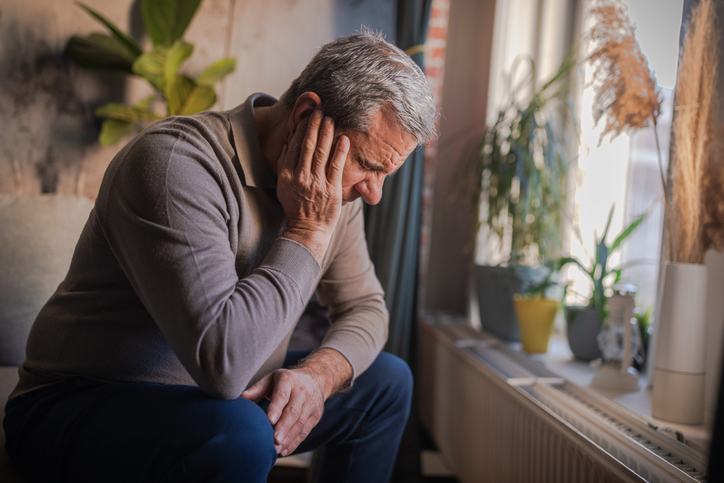Men and Strokes: Essential Knowledge for Prevention and Action
October 31, 2024
Categories: Brain & Neuro, Men’s Health
Stroke is one of the leading causes of death and disability for men. Fortunately, most strokes are preventable. Understanding risk factors, knowing the signs and symptoms, and being aware of how to respond quickly can all help reduce the chances of disability or death resulting from a stroke.
What is a Stroke?
Strokes happen when blood cannot reach a part of the brain. This can result from a clot blocking blood flow or a burst blood vessel in the brain. The lack of blood flow to the brain cells starves them of oxygen and results in cell death, potentially leading to impacts on mobility, speech, and cognitive function, or even death.
Stroke Risk Factors: What Every Man Should Know
Certain risk factors make men more susceptible to strokes. Understanding these can help you take proactive measures:
- Age: Stroke risk increases with age. Men over 55 are at higher risk.
- High Blood Pressure: Most men with hypertension do not have their blood pressure controlled. Hypertension is one of the most significant risk factors for stroke.
- Smoking: Men are more likely to be smokers than women. Smokers are at significantly higher risk of stroke due to blood vessel damage from smoking.
- Alcohol Consumption: Men are more likely to consume too much alcohol. High levels of alcohol consumption can raise blood pressure, increasing the risk of stroke.
- Diabetes: 1 in 7 men have diabetes. Diabetes can cause damage to blood vessels in the brain, increasing the risk of stroke.
- High Cholesterol: Men between the ages of 20-55 tend to have higher levels of LDL cholesterol (also known as “bad cholesterol”) and lower levels of HDL cholesterol (also called “good cholesterol”). High levels of “bad cholesterol” can lead to atherosclerosis and the formation of clots, which can cause strokes.
- Family History: A family history of stroke can indicate increased stroke risk. If you have relatives who have experienced strokes, discuss this with your doctor.
Recognizing Stroke Symptoms: B.E.F.A.S.T.
Understanding the symptoms of a stroke can be life-saving. Remember the acronym BE FAST:
- B – Balance: A sudden loss of balance, dizziness, or walking differently.
- E – Eyes: Vision loss, blurry or double vision, or trouble seeing.
- F – Face: Drooping or numbness on one side of the face.
- A – Arm: Weakness or numbness in one arm.
- S – Speech: Slurred or garbled speech.
- T – Time: If you notice any of these symptoms, call 911 immediately and ask to be taken to Riverside’s Emergency Room. In the event of a stroke, time lost equals brain lost. Prompt medical treatment is essential.
“Faster evaluation and intervention in the case of stroke significantly increases the chances of a good clinical outcome,” said Dr. Jehad Zakaria, “It is better to be safe than sorry. Any patient or family member who recognizes symptoms of an acute stroke should immediately call 911.”
Stroke Prevention: What You Can Do
Healthy habits can help reduce the risk of stroke. Take these steps to play an active role in stroke prevention:
- Healthy Eating: Focus on consuming lean proteins and high-fiber foods. Avoid foods high in saturated fats, trans fats, and sugar.
- Get Active: Increase your daily physical activity. This can be anything from taking more walks to visiting the gym more frequently.
- Actively Monitor Your Health: Be sure to schedule your regular doctor visits and receive health screenings as indicated by your healthcare provider. Monitor blood pressure, cholesterol levels, and overall health.
- Limit Alcohol Consumption: For those who consume alcohol, moderation is key. For men, limit alcohol to two drinks per day to help reduce risk.
- Smoking Cessation: Up to 25 percent of strokes can be attributed to cigarette smoking. Quitting smoking is one of the most impactful ways to take control of your health and reduce stroke risk.
Conclusion:
Stroke awareness is critical, especially for men who may face higher risks. Understanding the risk factors, recognizing the symptoms, and making informed lifestyle choices can help reduce stroke risk and improve overall health.
With area-exclusive advanced stroke care capabilities, Riverside can treat acute stroke patients close to home, meaning faster treatment and better outcomes. If you or a loved one are experiencing a stroke, call 911 immediately and ask to be taken to Riverside Medical Center. Learn more at RiversideHealthcare.org.